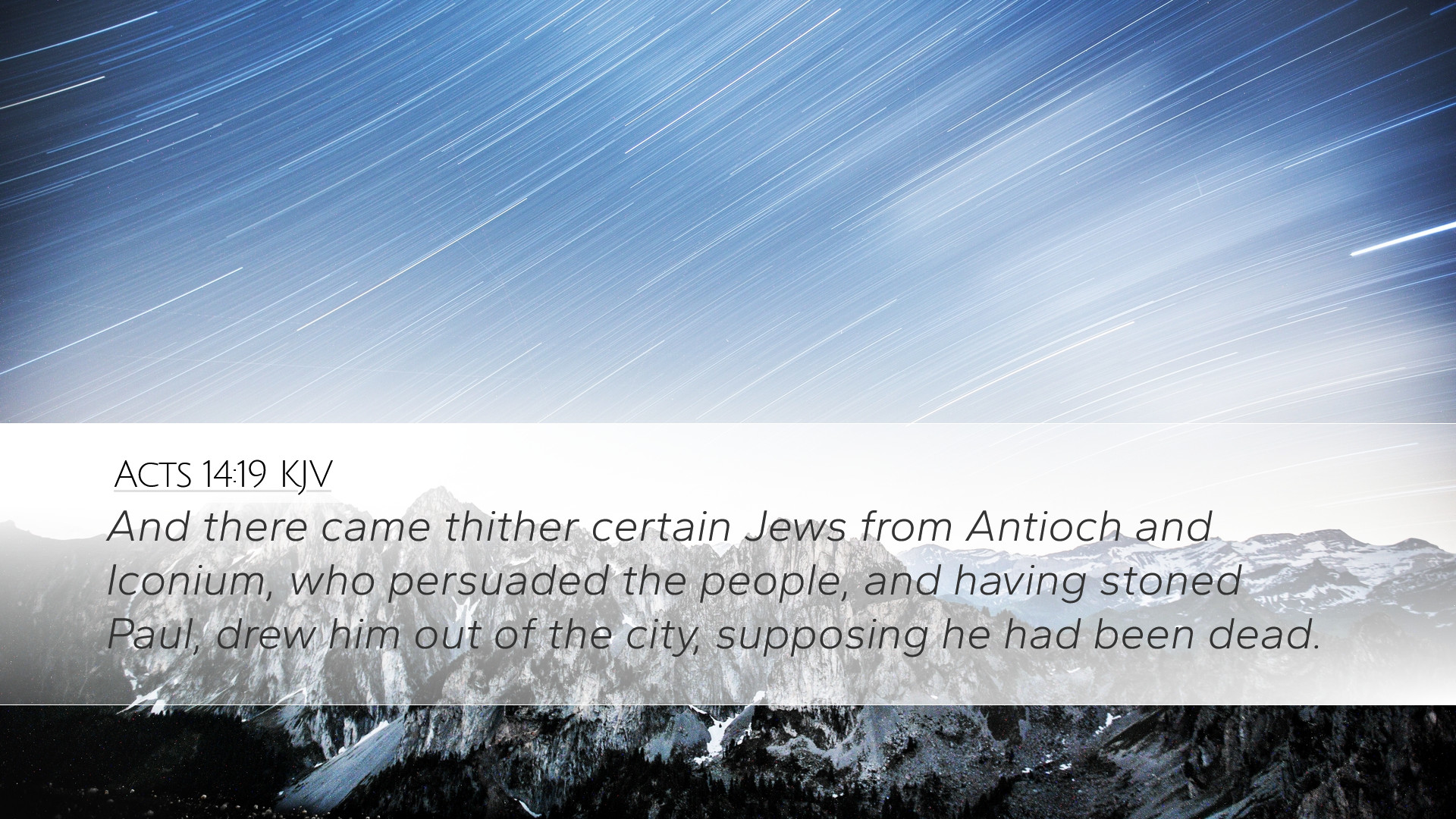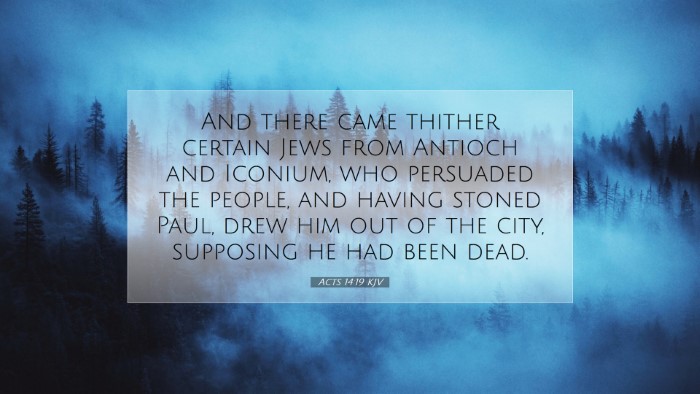Commentary on Acts 14:19
Acts 14:19 states: “But Jews came from Antioch and Iconium, and having persuaded the crowds, they stoned Paul and dragged him out of the city, supposing that he was dead.” This verse presents significant themes of persecution, resilience, and the mission of the early church. Below is a synthesized commentary derived from notable public domain sources.
Contextual Background
The missionary journey of Paul, particularly the events recounted in Acts 14, illustrates the fervor and opposition encountered in the spread of the Gospel. Paul and Barnabas faced aggressive hostility, particularly from Jewish groups who viewed their teachings as a threat to traditional beliefs.
Historical Perspective
As Albert Barnes elucidates, the arrival of Jewish leaders from Antioch and Iconium signifies a strategic move to stamp out the growing influence of the apostles. Their role in inciting hostility among the crowds reflects the societal tensions present during this era, emphasizing the challenge faced by early Christians.
Paul's Courage and Mission
Matthew Henry’s commentary emphasizes Paul’s determination to continue preaching despite the dangers. The stoning of Paul signifies not just physical peril but a profound spiritual test. He exemplifies the mission spirit, showing a commitment to the Gospel that transcends personal safety. Henry points out that this affliction was a fulfillment of Jesus' words that His followers would face persecution, underscoring the sacrificial aspect of apostolic ministry.
Divine Providence in Persecution
Adam Clarke provides insights into the idea of divine providence in the face of trials. Paul’s experience can be seen as part of God’s plan, designed to forge a resilient church. The brutal act of stoning could be interpreted as a means by which God preserved the faith of the believers who witnessed Paul’s ordeal, solidifying their resolve against adversity.
Theological Implications
This passage exemplifies key theological concepts pertinent to the Christian faith. It brings forth the idea of suffering for the Gospel's sake, aligning with various scriptures that speak to the necessity of enduring trials.
- Identification with Christ: Just as Christ suffered, so too do His followers. This correlation serves to deepen the believers’ understanding of their faith journey.
- The Role of Community: The influence of the crowds, swayed by the antagonistic Jews, teaches about communal faith dynamics and the need for discernment among believers.
- Hope and Resurrection: The narrative doesn’t end with Paul’s stoning; it continues to show that even when all seems lost, God can bring revival, a theme resonant in post-resurrection theology.
Practical Applications
Pastors, theologians, and students of scripture can glean significant lessons from Acts 14:19 in terms of practical ministry and spiritual formation.
Embracing Trials
Believers are called to embrace trials and tribulations as part of their walk with Christ. The understanding that hardships may lead to growth in faith is foundational to pastoral counseling and congregational leadership.
Community Accountability
This verse serves as a reminder of the importance of fostering a mature and discerning community, where faith is upheld amidst external pressures. Church leaders should cultivate environments that support believers through trials and encourage them to stand firm against worldly influences.
Inspiration from Paul’s Example
Paul’s unwavering dedication to his mission, even in the face of life-threatening opposition, inspires contemporary evangelism efforts. His story encourages believers to be bold in their witness, trusting that God will sustain them in their ministry.
Conclusion
Acts 14:19 provides a vivid illustration of early Christian experience marked by persecution, resilience, and divine purpose. As contemporary readers reflect on this verse, they encounter not just a historical narrative, but a call to engage with their faith courageously and faithfully, in the spirit of Paul and the early church.


